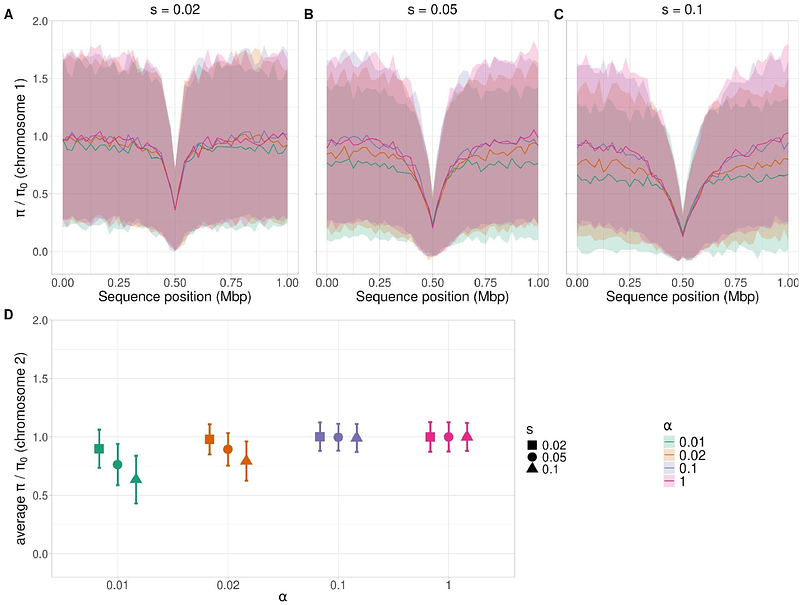Beyond Recombination: Exploring the Impact of Meiotic Frequency on Genome-wide Genetic Diversity

Beyond Recombination: Exploring the Impact of Meiotic Frequency on Genome-wide Genetic Diversity
OLLIVIER, L.; Charlesworth, B.; Pouyet, F.
AbstractAn important aim of population genetics is to elucidate the processes affecting genetic diversity across regions of the genome and across species. Canonical population genetic models of sexually reproducing species define the rate of meiotic recombination in terms of the frequency of events per site per sexual generation. This paper studies the interplay of several factors with respect to their effects on neutral genetic diversity in a facultatively sexual, diploid, unicellular species such as yeast. The relevant factors are the prevalence of meiosis versus mitosis, the recombination rate, and the selection and dominance coefficients at loci under positive selection. We assume that many generations of mitotic cell divisions are interspersed with episodes of sexual reproduction, in which all individuals in the population undergo meiosis, followed by random matings among the resulting gametes. Our findings reveal that a single hard selective sweep can reduce neutral nucleotide site diversity across the entire genome, provided that the frequency of meiotic events is sufficiently low (half or less than half of the frequency with full sexuality), and that the effects of a selective sweep on levels of neutral diversity at sites linked to the target of selection can be markedly different from those predicted by standard models of sweeps. Species that reproduce by facultative sex are thus likely to exhibit unusual patterns of genetic diversity.